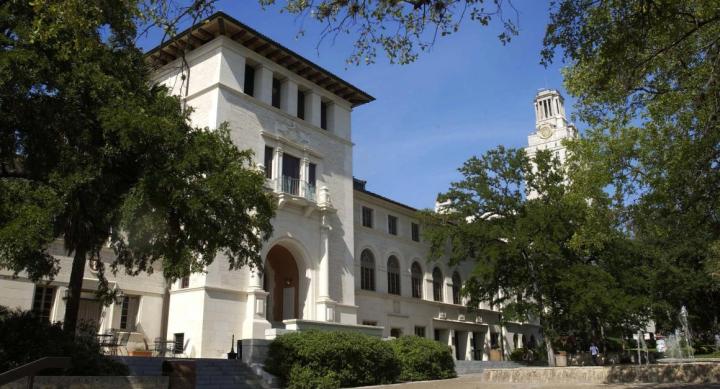
This summer, the Center for Teaching and Learning is pleased to host the Big 12 Teaching and Learning conference on the campus of UT-Austin. We recently had the opportunity to interview one of our keynote speakers, Emily Drabinski, on topics related to higher education and critical information studies.
|
|
Emily Drabinski is the Critical Pedagogy Librarian at the Mina Rees Library at the Graduate Center, CUNY. She also serves as liaison to the School of Labor and Urban Studies as well as a number of other masters and doctoral programs at the university. Her research interests include critical approaches to information literacy instruction, gender and sexuality in librarianship, and the intersections of power and library systems and structures. She is series editor for Gender and Sexuality in Information Studies from Library Juice Press/Litwin Books and sit on the board of Radical Teacher. |
Please tell me about your research interests in gender and sexuality in Information Studies. How do these two fields intersect, and how did you begin to pursue this research?
All of my research questions are rooted in my own experiences in the world. What forces produced me? What systems enable my life? As a librarian, I work with systems that organize information so that it can be accessible to others. This is really important work--otherwise we're all just digging through piles of books. Cataloging and classification are essential to the library and the world. We order things; that's what humans do. But those systems can also be rigid and inhospitable. As a queer-identified person, I became fascinated by the ways that identity is represented in the library as a fixed identity, one that sits on the shelf in a single place. This isn't how queer identity works--queerness is in motion, contingent, and changes over time. Where do we fit in the catalog, and what do our complications mean for other ordering systems beyond the library? This is the question I am always trying to answer.
Congratulations on your new role as Critical Pedagogy Librarian at the Mina Rees Library at the Graduate Center, CUNY. What is a Critical Pedagogy Librarian? Can you tell me about this new role and the work that you will be doing?
This is a new position in the library, and I am excited to get started. I see this as an opportunity to build teaching and learning programs that include a critical perspective on how knowledge is produced, selected, acquired, organized, circulated, and preserved as part of how students and faculty view their own research. I am interested in the material conditions of information production, and think that an understanding of those conditions can shape research in ways that contest and challenge those conditions. Working with graduate students, many of whom will go on to be researchers and teachers, offers a chance to build critical approaches to knowledge production into that training.
What do you see as the most immediate issues that you want to address in your new role? What about the most important issues?
Austerity budgets and disinvestment in higher education mean that students are struggling to pay for their educations at the same time they are trying to make a life in one of the most expensive cities in the world. All of our work takes place in that context, one where we find ourselves fighting for the right to do our jobs even as we're doing them. I see my role as one that must take this seriously and work toward liberating content from closed systems. That means a focus on open access and open educational resources for faculty and students.
How would you describe the role of the librarian in the ecosystem of higher ed learning? How do you work with faculty and other instructional partners on your campus?
Librarians are connectors. At my old job, some people called me "the Switchboard" because of the 30,000 foot view librarians so often have of life at the university. We are always building infrastructure, from our knowledge organization schemes to our book stacks to our calendars of classes, desks, and workshops. It's our job to have that bird's eye view, and to make connections where we see them, with writing centers, with centers for teaching and learning, with faculty starting new programs.
Information literacy seems to be a field that is both increasingly urgent and incredibly dynamic, expanding to accommodate new forms of digital media and information. How do you think institutions of higher education can better teach information literacy in this constantly changing environment?
I think the best way to teach students to understand the information worlds they inhabit is through collaboration and integration with the other learning being done on campus. Teaching about "information" as a general concept is difficult. Information exits in context, as do all kinds of skills related to media literacy, digital literacy, visual literacy, etc. A newspaper article about something Donald Trump has done works differently in a history class, a composition class, an art class. So librarians need to be integrated and connected to those contexts. Of course, this relies on a faculty and staff with time for collaboration--working in groups and teams takes time and support. This is increasingly difficult as we all face budget shortfalls and a reliance on contingent, part-time adjunct labor. This is why I also see the struggle for fair and equitable working conditions as essential to my library work.

